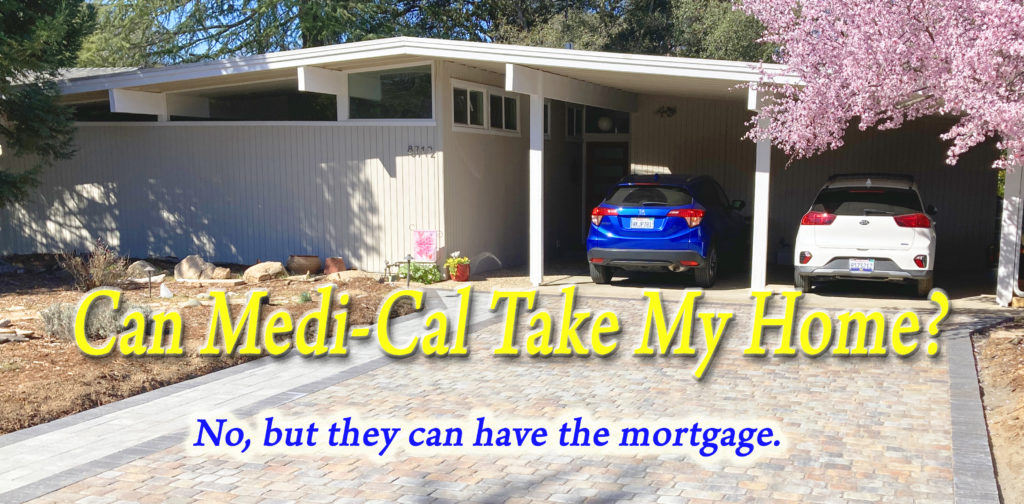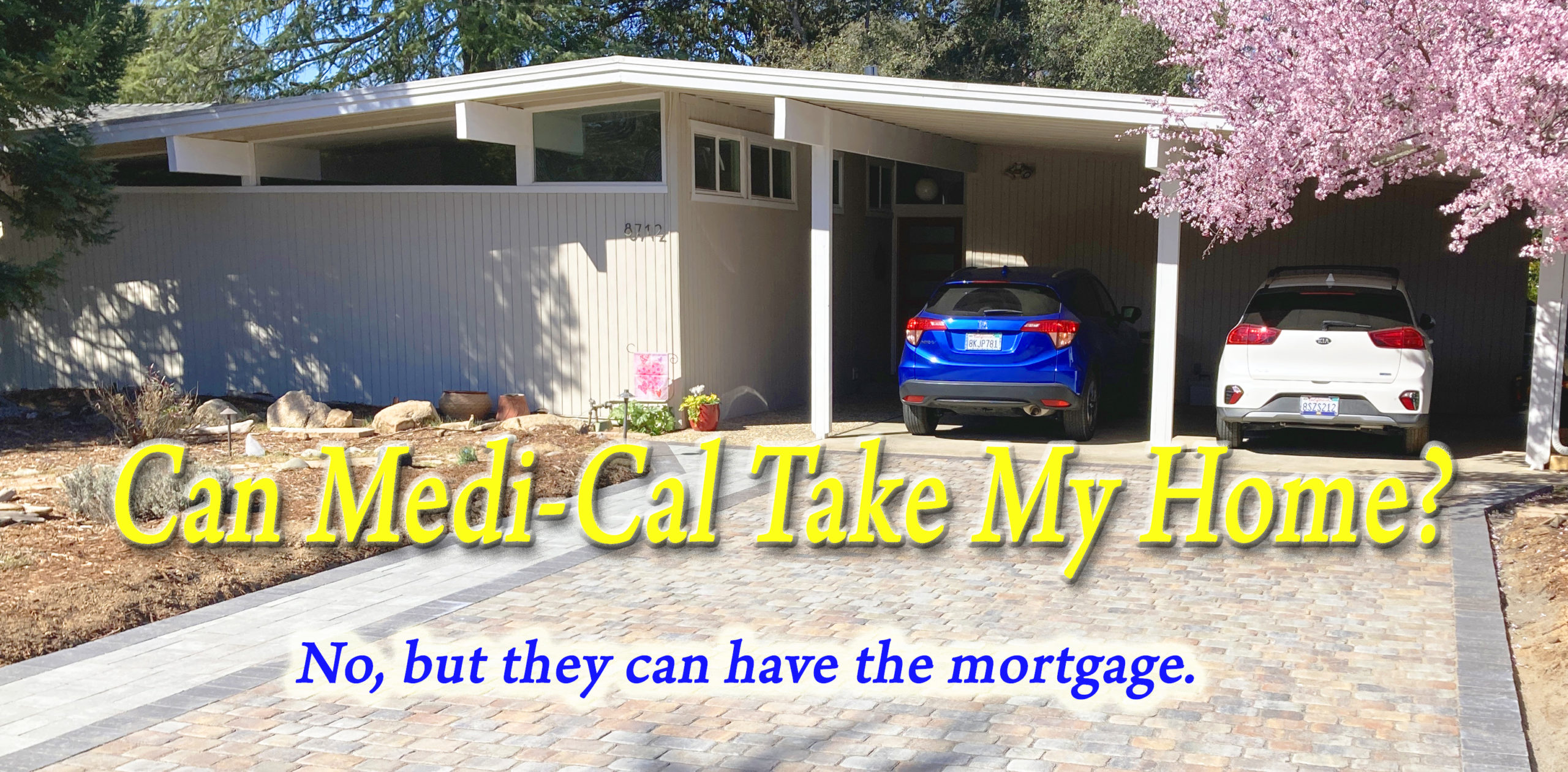There is a lot of confusion and myths about the Medi-Cal Estate Recovery program. Medi-Cal will not take your home and if your spouse or registered domestic partner survives you, Medi-Cal will not force them out of the house to recover costs incurred for your health care.

The Medi-Cal Estate Recovery program seeks to recover health care expenses paid by the State of California on behalf of a deceased Medi-Cal beneficiary. If the individual owns nothing when they die – has no estate – then nothing will be owed. Estate Recovery applies to beneficiaries over the age of 55 and individuals of any age in an institution such as a skilled nursing facility.
Medi-Cal Will Not Take Your Home or Force You To Sell It
An estate is all real and personal property and other assets that the Medi-Cal beneficiary had any legal title or interest in at the time of their death. The estate would include homes, cash, assets, cars, jewelry, etc. According to Medi-Cal literature, after a Medi-Cal beneficiary dies, the person’s estate may have to repay the health care costs covered by Medi-Cal. Health care expenses potentially covered by Medi-Cal could include dental services, HMO managed care health plan premiums, and skilled nursing facilities.
An accounting of Medi-Cal reimbursed expenses for health care services can be requested from Medi-Cal for a small fee. The request can be made once per year for individuals over 55 years of age or permanent inpatient residents of a nursing facility or long-term care facility.
Medi-Cal (California Department of Health Care Services) will not file a claim through the Estate Recovery program if:
- There is a surviving spouse or registered domestic partner.
- There is surviving child who was younger than 21 when the Medi-Cal beneficiary died.
- The beneficiary is survived by a child of any age who is blind or disabled.
In addition to the above exemptions, Estate Recovery can be waived if substantial hardship exists for the surviving family members. Estate Recovery is targeted at the assets of the deceased beneficiary. If the deceased Medi-Cal beneficiary owns nothing when they die, nothing will be owed. The State will never force children to move to force the sale of a home to satisfy Estate Recovery.
2017 Estate Recovery Changes
With the expansion of Medi-Cal under the Affordable Care Act, more people became eligible for MAGI (Modified Adjusted Gross Income) Medi-Cal. MAGI Medi-Cal only considers a household’s income for eligibility, not assets such as bank accounts, homes, or cars. This was a boon to many low-income households with individuals over the age of 55. Unfortunately, the Estate Recovery rules sought to recover the Medi-Cal costs of the HMO managed care health plan these people were enrolled into.
In 2016, Senate Bill 833 that proposed changes to the Estate Recovery program was introduced, passed and signed into law. Effective in 2017, Medi-Cal beneficiaries age 55 and older will not be subject to Estate Recovery for MAGI Medi-Cal health plan premiums, if they die after January 1, 2017, according to guidance from the Department of Health Care Services. Estate Recovery still applies to individuals 55 and over when Medi-Cal covers the costs of a skilled nursing facility, home and community-based services, hospital, and prescription drug services.
In the “For What’s Its Worth” category, here is my experience. My dad, because of a stroke, was in a skilled nursing facility paid for by Medi-Cal. Mom was alive and living in their primary residence. When mom died in 2006, and Dad could not go back to the house, I had to sell the house. The house, that Dad could not live-in, was classified as an asset and put him over the asset limit for Medi-Cal eligibility. I sold the house and used the proceeds to pay for his skilled nursing facility. When his bank account dropped below $2,000, he was then eligible for Medi-Cal again.
After his death in 2010, he had no estate, owned nothing, and owed nothing to Medi-Cal. I’m grateful for the assistance from the State of California that paid for his skilled nursing facility.


